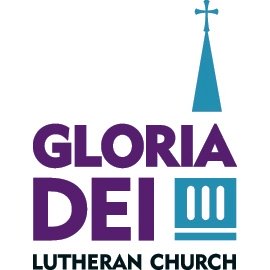Q: What is the proposal?
A: Ten percent of the funds pledged to the capital budget will be used for the work of reparations. For 2023, that amounts to roughly $30,000. A tithe is a biblical standard for dedicating funds to the work of God in the world.
Q: Why include reparations in the Gloria Dei budget?
A: Our land acknowledgment statement commits us to taking concrete action to do the work of healing and reconciliation. These funds help us to begin that work.
Q: Why place reparations in the capital budget?
A: The capital budget is the portion of the budget most directly related to the building and the land. It provides us a way of directly noting that, along with the mortgage and maintenance, doing the work of healing is an essential part of how we take care of creation and this property. Our land acknowledgment statement recognizes that the land was taken through exploitation and violence.
Q: How will we decide what organizations to support?
A: Our mission is to support projects that help Indigenous people directly and build relationships that will last. As our relationships with Native communities grow, we will keep coming up with new ways to help many Native-led organizations.
The Racial Justice Committee worked with our consultant, Dr. Kelly Sherman Conroy (Lakota), to create a list of criteria we can use to determine which Indigenous organizations to invite to partner with our congregation. The list of criteria was then added to by those attending the three Sunday forums in fall 2022 dedicated to our Reparations work. The list of criteria includes: focused on healing in our local area; reparative for something that was taken (education, history/voice, language, culture, homelands, spirituality, food sovereignty); Native-led; will be perceived by Native people as justice; the partnership aligns with Gloria Dei Mission and Guiding Principles; there will be opportunities for relationship building as well as financial support; the impact will be on the lives of individuals.
Q: Isn’t this just a way to throw money at the problem?
A: Money is one of the ways that our time and energy are expressed as a concrete investment in a community or organization that has defined its mission with Indigenous or Native people. As we join in supporting that mission, we seek to be a model to other congregations on how reparations with Indigenous people can transform and empower all involved beyond just financial reparations. Money is only one part of the relationship.
Q: Will we provide funds to only one organization?
A: The racial justice committee is still considering how partnerships will develop. Funding is one part of that consideration. It may be determined that the full annual funds are needed to support a community. However, it may also be determined that we would like to use those funds in a variety of ways with multiple organizations and projects. The racial justice committee will bring all proposals to the church council for consideration.
Q: Why limit reparations to healing work with only Native American people?
A: This proposal provides a way to begin the meaningful work of repentance and repair. It does not limit us from further action with other communities. The work of racial justice will need to be part of our ministry for years to come. We hope to grow in our commitment. In short, we have to start somewhere and our proximity to Bdote makes this a relevant beginning. Although we will never be able to right the wrongs done to Indigenous peoples, we may begin to heal by working together to create bridges, share the truth about our history, and make amends. This proposal is a great first step toward taking action to support Indian Country meaningfully.
Q:How can I get involved?
A: There are a variety of ways to be involved in the work of racial justice, from being part of the committee to participating in certain programs, projects, or events. You can express your interest by filling out the Shared Ministry document. You may also contact the chair of the committee, Stephanie Walseth, stephanieleinwalseth@gmail.com.

